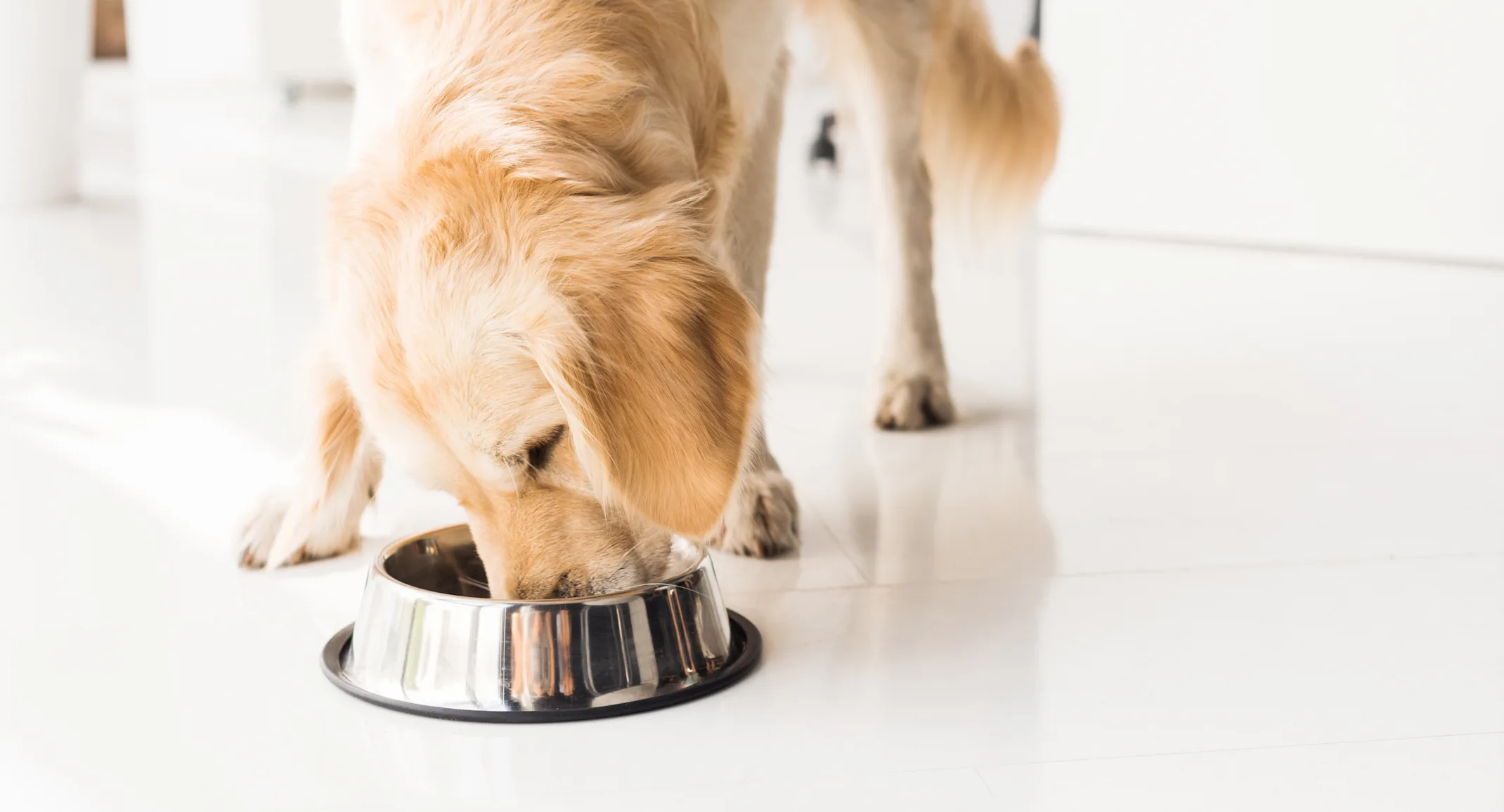Vegetables Dogs Can Eat in Chicago, IL
Dogs

There are certain vegetables that your dog can have, and others should never be given to them. Dogs can have broccoli, carrots, asparagus, and some other vegetables. However, they should never have garlic, onion, or mushrooms.
You must also learn how to prepare these vegetables to be safe to eat. If you want to see a list of vegetables dogs can eat, this article is for you.
CAN DOGS EAT VEGETABLES?
Dogs are omnivores, meaning they can eat plants and meat. You can give your pup vegetables for a nutritional boost. There are certain vegetables that your dog can eat and some that they cannot have.
There are certain vegetables that dogs can eat. Celery, carrots, and green beans are all suitable for your dog to munch on. Root vegetables are also okay for your pup to eat. However, these contain a lot of starch and sugar, and you may want to limit them in your pup’s diet.
Not all vegetables are appropriate for dogs, and there are some that you want your pup to avoid altogether because they are dangerous for them. You should also remember that it is only okay to feed your dog vegetables sometimes, as they are not a normal part of their diet.
WHAT VEGETABLES CAN DOGS EAT?
Dogs can eat some vegetables. However, there is a particular way that you want to prepare these vegetables for your dog. You can prepare vegetables for your pup in a variety of ways:
Cook
Steam
Bake
Roast
Grill
Puree
You can also give it to them uncooked. You also want to remember not to use salt, which is not good for them. The following include some of the vegetables that dogs can eat, their health benefits, and how to prepare veggies for them:
BROCCOLI
Broccoli is an excellent resource of nutrition for dogs. It is high in many vitamins and minerals that are helpful for you and your pup. Broccoli has loads of fiber, which can help your pup if they are having difficulty with their bowels. Some of the other health benefits of broccoli include:
Vitamins A, B, C, K
Calcium
Folate
Phosphorus
Potassium
Zinc
Do not add spices or seasonings, like garlic, which is toxic to dogs. A snack serving is two bite-sized florets. Wash the broccoli, cut off the stalk, and cut into small florets. Put the broccoli in a steamer and steam for about six to eight minutes. You can also microwave it.
CARROTS
Most pups adore carrots because they are crunchy sweet, and fun to chew. Carrots are an excellent snack for your dog for many reasons. One of them is that they are good for their teeth. The chewing mechanism helps clean your dog’s teeth and gums by cleaning plaque off the teeth’s surfaces.
Besides vitamins A, C, and B6, some other nutritional benefits of carrots include:
Beta-carotene
Potassium
Lutein
Calcium
Iron
You can give your dog carrots uncooked and let them chew them. You can also grate carrots onto their food for a nutritional boost. You can also steam them for about two to six minutes or cook them in a boiling pot for ten minutes. A snack portion size is one or two bite-sized pieces.
CELERY
Celery is another snack that can help your dog’s teeth. It may also help to freshen their breath. It is a high-fiber treat for your pup. Some other nutritional benefits of celery include:
Vitamin A
Vitamin B
Vitamin C
Potassium
Folate
Magnesium
Iron
You will need to cut this vegetable into bite-sized pieces so your pup does not choke on it. You can give it to your canine uncooked or juiced and pour it over their food. Celery can also keep your dog hydrated, as it is water dense. A snack portion is one or two bite-sized pieces.
CUCUMBER
The cucumber’s water content makes it the ideal snack to keep your dog hydrated. Cucumbers are made up of about 95 percent water. Dogs tend to enjoy its crisp, cool, refreshing taste. Some of the nutritional benefits of cucumber include:
Vitamins A, C, K
Potassium
Magnesium
Fiber
You should wash the cucumber, peel it, cut it in half, and remove all the seeds. Cut it into bite-sized portions for your dog. Cucumbers should be given to your pup raw. A snack portion is one or two bite-sized pieces.
GREEN BEANS
Green beans are high in vitamins and nutrients. Ensure you do not add seasonings or spice when you give it to your pup. Frozen or even canned is okay to provide to them as long as there is no added salt. Green beans pack a punch with vitamins A, C, K, E, and B6. Some other nutritional benefits of green beans include:
Thiamin
Niacin
Magnesium
You should wash the green beans thoroughly and cut off the ends. You can boil it in a pot for ten minutes, then give it to your pup. You can also prepare green beans with brown rice and chicken, which is great if your dog is experiencing gastrointestinal upset. You can give them a quarter of a cup.
ASPARAGUS
Asparagus is another nutritional powerhouse that you can feed your dog. You need to make sure that you remove the fibrous ends and wash it thoroughly. Toss it with olive oil on the grill and give it to your pup. Some nutritional benefits of asparagus include folate, potassium, phosphorus, and iron.
There are also some essential vitamins, including:
Vitamin K
Vitamin C
Vitamin E
Vitamin A
Asparagus is also an excellent resource for fiber. You can also cook the asparagus until it is tender and give it to your pup. You can cut it into bite-sized portions and add them to your dog’s food. Your dog can have one or two cooked spears.
CAULIFLOWER
Cauliflower is high in essential nutrients and vitamins. Please do not add spices or seasoning when giving it to your dog. It is also a high-fiber vegetable. Some of the nutritional benefits of cauliflower include folate, potassium, magnesium, phosphorus, and choline.
This vegetable also has some important vitamins like:
Vitamin B6
Vitamin K
Vitamin C
Wash the cauliflower thoroughly. Grill it with some olive oil. You can offer your pup one or two florets or a quarter cup mashed or pureed.
PEAS
Green, sugar snap, snow, and garden peas are all okay for your dog sometimes. You can also give your dog frozen or canned peas. Make sure there is no added salt. Peas have plenty of fiber in them. Besides the vitamins A, B, C, and E, some of the nutritional benefits of peas include:
Omega 3
Omega 6
KMagnesium
Folate
Copper
You can grill sugar snap or snow peas in olive oil, and you need to shell garden peas before cooking them. You can also take the peas out of their pods and cook them. You can give them one or two sugar snaps or snow peas.
SWEET POTATO
Sweet potato is okay for dogs to have sometimes. However, it is high in calories, so you must be mindful of portion sizes. It is high in fiber, which is ideal for a constipated pooch. Some of the nutritional benefits of sweet potato include:
Vitamin A
Vitamin B6
Vitamin B5
Vitamin C
Magnesium
Potassium
Iron
Calcium
You can dehydrate the sweet potatoes. You can also smash them up for your pup. Wash and peel the sweet potatoes, cut them into quarters, and cook in boiling water for about twenty minutes. Remove from the pot, then mash them up with a potato masher.
WHAT VEGETABLES ARE NOT GOOD FOR DOGS?
There are some vegetables you should never allow your dog to eat. They may be toxic to them or cause gastrointestinal upset. The following are vegetables that are not good for pups:
Onions
Rhubarb
Mushrooms
Tomatoes
Garlic
Onions
All the above foods should never be given to your dog. If you suspect your pup may have ingested these foods, get them to the vet immediately.
CONCLUSION
There are certain vegetables that your dog can have, as it provides them with additional nutrients and vitamins. Make sure you do some research and talk to your veterinarian before giving your dog human food.
If you have any questions regarding your dog’s health, please give us a call at (773) 698-7525 or Request an Appointment. We are more than happy to help you and your pet here at Wrigleyville Veterinary Center.
